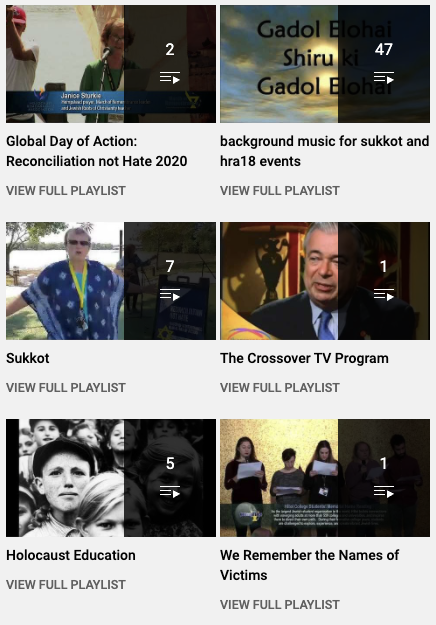The one aspect that impacted me the most regarding the March of Remembrance was watching Baerbel Suzette Pfeiffer apologize to all these Jewish descendants on behalf of her grandfather. Baerbel confesses that her grandfather was the man who laid the pipework for the gas chambers in Auschwitz and many of the electric fences that sealed in thousands of Jewish prisoners. When Baerbel found out the truth, she felt so conflicted living with the fact that her grandfather was the one who gave the tools to these Nazis to torture and killed all these Jewish inmates. Her voice sounded so guilty and heartbroken. She admits that although she could not replace the lives of the relatives lost under her grandfather’s tools, she wishes to apologize on her grandfather’s behalf. Baerbel then opens her arms and wishes to apologize and give hugs as means of reconciliation to all the descendants who had relatives lost to Auschwitz. The Jewish community attending takes her open arms, hugs her, and reconciles with her. Although her apologies cannot fix the anguish caused by this merciless killing and, this community knows that they still accept her apology. They take it as a form of showing love and forgiveness. Suppose this cruel and hateful man started a nasty cycle of vengeance. In that case, it is up to them to end it by showing a mutual effect of love and understanding.
This show of love and gratitude impacted me greatly because I feel that there is too much hate, wrath, and general disdain in today’s world. There is a need for mutual understanding and forgiveness to combat the widespread evil strengthened by the fear of the unknown. Watching this documentary and seeing this act of love play out before me, I felt moved. I could not help but feel as if I wanted to pull myself through this screen and give hugs to Baerbel and the other descendants attending her apology. These actions of endearment felt as though they lit a flicker of hope inside my mind that said, “the world is not so dark, there is hope in places you never think to look sometimes.” Watching the apology, I realized I needed that in my own life: the idea that maybe not everyone acts on resentment, fear, and personal gain. The Pfeiffer apology and the graciousness and forgiveness of the community made me think about how people need to let go of their anger, look within themselves, and forgive who or what has mistreated them. However, forgiving is not necessarily forgetting; they should not forget the mistreatment but learn to forgive and take something from the injustice so they can pass it on to their future generations.
I incorporate this in my own life as I reflect on the pandemic and thinking of everything it has taken from me. Although I realize that what the pandemic took from me was minimal to what the Holocaust took from thousands of families, it was my first significant moment where I learned to practice forgiveness. The pandemic took my graduation, college acceptance, liberty, and connections to everything I felt I could ground myself in. I felt isolated and thought someone was punishing me in a way. For a long time, I was furious. Every time I would blame something after the other as to why I am stuck in this situation. “If it were not for the pandemic, I would be studying in university right now,” “If it were not for these ruthless people, I would not have to continue to work to provide for my family,” “If it were not for these diseases, I would have had a chance to say goodbye to my friends before they left,” these were excuses that I was constantly telling myself. At one point, I became so ruthless, I took my graduation certificate off the wall and shattered the frame across my floor. When my mother walked in and realized what I had done, she did not punish me. Instead, she took the time to help me collect the pieces and throw them away. She commented that it was such a beautiful frame, and yet I destroy it in my anger. She questions why I did these actions, and I confessed I just felt so angry all the time, and the certification just felt like nothing to me. She then told me an old Spanish saying which roughly translates to “If you surround yourself with so much hate, where will you find the room for love?”. From this day forward, I began to forgive all these actions done to me: this pandemic, the people surrounding it, and every other aspect. I felt there was no reason to keep dwelling on the past, so instead of reminiscing on everything, I learned to forgive and keep moving forward. Instead of feeling hatred towards my lost education, I took up community college. Instead of feeling hatred towards my work, I tried to look at all the positive aspects. Finally, instead of feeling hatred towards these connections I felt I had lost, I found new ways to rekindle them. If I can find ways to forgive these situations and be hopeful, others can learn to do the same.
These reasons are why I find the organization so fascinating. They tell the stories of the Jewish community that learned to incorporate an even ground between learning to forgive those involved with the Holocaust of all these disgusting events and understanding not to forget them and take away a lesson of getting rid of that prolonged hatred against them. I find their stories and their sayings inspiring. I want to incorporate the organization’s way of thinking into my everyday life, in the goals that I pursue, how I treat others, and how I treat myself.

